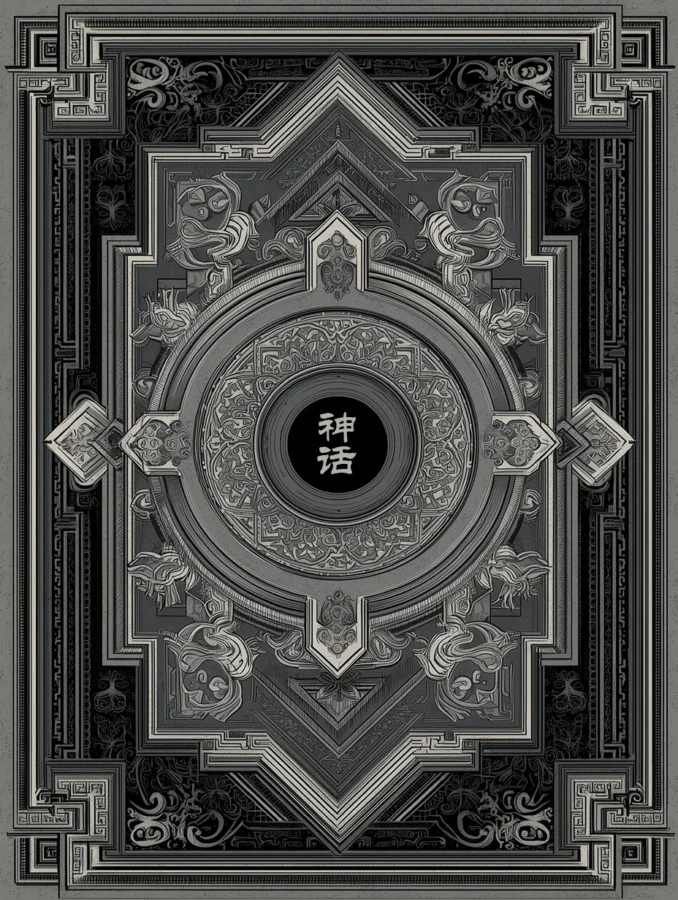Gōumáng
句芒
Hook sprout

"God of Wood, Spring, and Growth"
Types |
Shén |
Attributes |
WoodSpring |
Groups |
Five Phasal Gods |
Appearance
Gōumáng has the body of a bird, wore white robes with a black hat, and had a perfectly square face.
Literature
Pre-Qin and Han – Ancient Classics. Classic of Mountains and Seas – Classic of Eastern Regions Beyond the Seas
先秦两汉·经典文献《山海经·海外东经》
Eastern god Gōumáng, has the body of a bird and the face of a human, and rides on two dragons.
东方勾芒,鸟身人面,乘两龙。
Pre-Qin and Han – Confucianism. The Classic of Rites – Proceedings of Government in the Different Months
先秦两汉·儒家《礼记·月令》
In the month of Mèngchūn (first month of spring), the sun is in the constellation of Yíngshì. At dusk, the constellation Shēn is at the center. At dawn, the constellation Wěi is at the center. The heavenly stems governing this month are Jiǎ and Yǐ. The ruling emperor is Tàihào, and the associated god is Gōumáng. The corresponding creatures are scaled beings (fish and reptiles). The associated musical note is Jué, and the pitch-pipe that governs the season is Dàcù. Its number is eight. Its taste is sour, and its associated smell is rank. Sacrifices are offered at the household gate, and the spleen is the first organ honored in ancestral rituals.
孟春之月,日在营室,昏参中,旦尾中。其日甲乙。其帝大皞,其神句芒。其虫鳞。其音角,律中大蔟。其数八。其味酸,其臭膻。其祀户,祭先脾。
Pre-Qin and Han – Mohism. Mozi, Volume 8 – On Ghosts III
先秦两汉·墨家《墨子·卷八·明鬼下》
Not only is what is recorded in the ancient texts true, but there is also the account of Duke Mù of Zhèng (about 640 B.C.). In the past, Duke Mù of Zhèng was in the ancestral temple at midday. A god entered through the gate and turned to the left. He had body of a bird, wore white robes with a black hat, and had a perfectly square face.
Duke Mù saw it and was terrified and fled, but the god said: “Do not be afraid! The Heavenly Emperor, appreciating your virtuous conduct, has sent me to grant you nineteen more years of life. He will also make your state prosper, your descendants flourish, and ensure that none of this is lost.” Duke Mù bowed twice and prostrated himself, saying: “May I ask your name, divine one?” The god replied: “I am Gōumáng”.
If we take Duke Mù of Zhèng’s personal encounter as an example, then how can one doubt the existence of ghosts and gods?”
非惟若书之说为然也,昔者郑穆公,当昼日中处乎庙,有神入门而左,鸟身,素服三绝,面状正方。郑穆公见之,乃恐惧奔,神曰:‘无惧!帝享女明德,使予锡女寿十年有九,使若国家蕃昌,子孙茂,毋失。郑穆公再拜稽首曰:‘敢问神名?’曰:‘予为句芒。’若以郑穆公之所身见为仪,则鬼神之有,岂可疑哉?
Pre-Qin and Han – Misc Schools. Huáinánzǐ – Instructions on Astronomy
先秦两汉·杂家《淮南子·天文训》
The East corresponds to Wood. It is governed by Tàihào, assisted by Gōumáng, who holds the compass and governs Spring. Its celestial body is Suìxīng (Jupiter), its sacred beast is the Azure Dragon, its musical note is Jué, and its associated days are Jiǎ and Yǐ.
东方,木也,其帝太皞,其佐句芒,执规而治春;其神为岁星,其兽苍龙,其音角,其日甲乙。
Pre-Qin and Han – Misc Schools. Huáinánzǐ – Instructions on Timing and Seasons
先秦两汉·杂家《淮南子·时则训》
Five positions. At the farthest extent of the East, starting from Mount Jiéshí passing through Joseon, extending through the land of the Great People, eastward to the place where the sun rises, the land of wood, and the plains of green earth and trees. This territory, governed by Tàihào and Gōumáng, spans 12,000 lǐ.
五位,东方之极,自碣石山过朝鲜,贯大人之国,东至日出之次,木之地,青土树木之野,太皞、句芒之所司者,万二千里。
Han. The Great Commentary on the Book of Documents, Volume 3 – Zhou Traditions – Treatise on the Five Phases
汉《尚书大传·卷三·周传·洪范五行传》
At the farthest extent of the East, from Jiéshí eastward to the Fúmù Plains where the sun rises, it is governed by Emperor Tàihào and administered by the god Gōumáng.
东方之极,自碣石东,至日出榑木之野,帝大皞,神句芒司之。
Games
